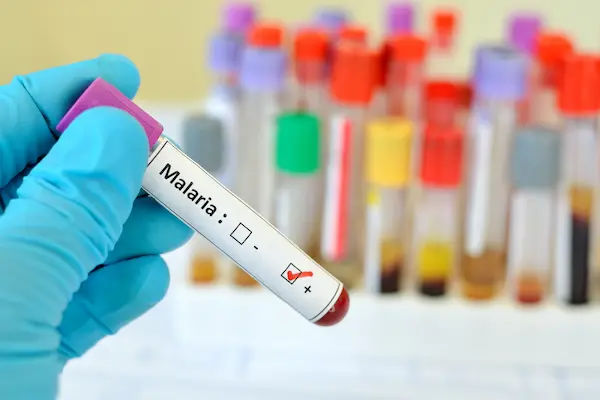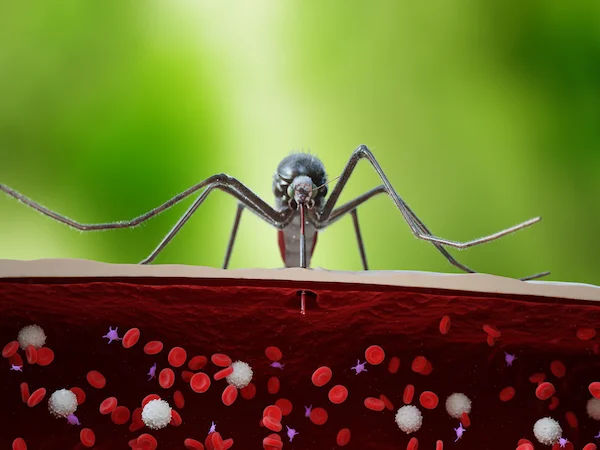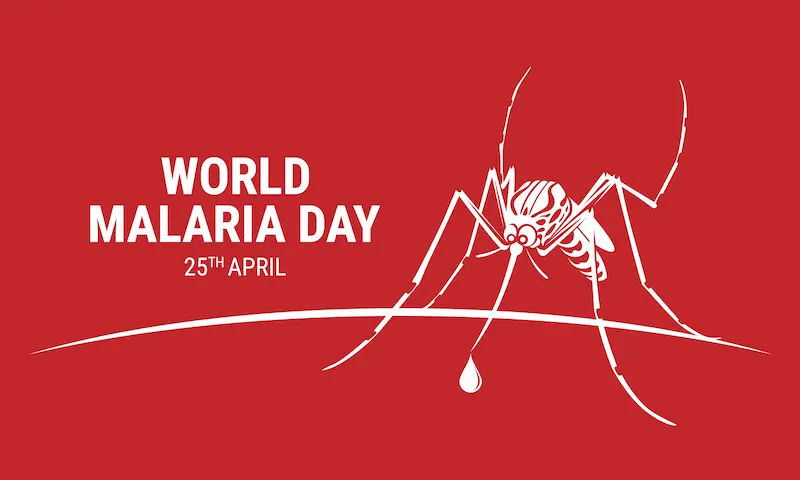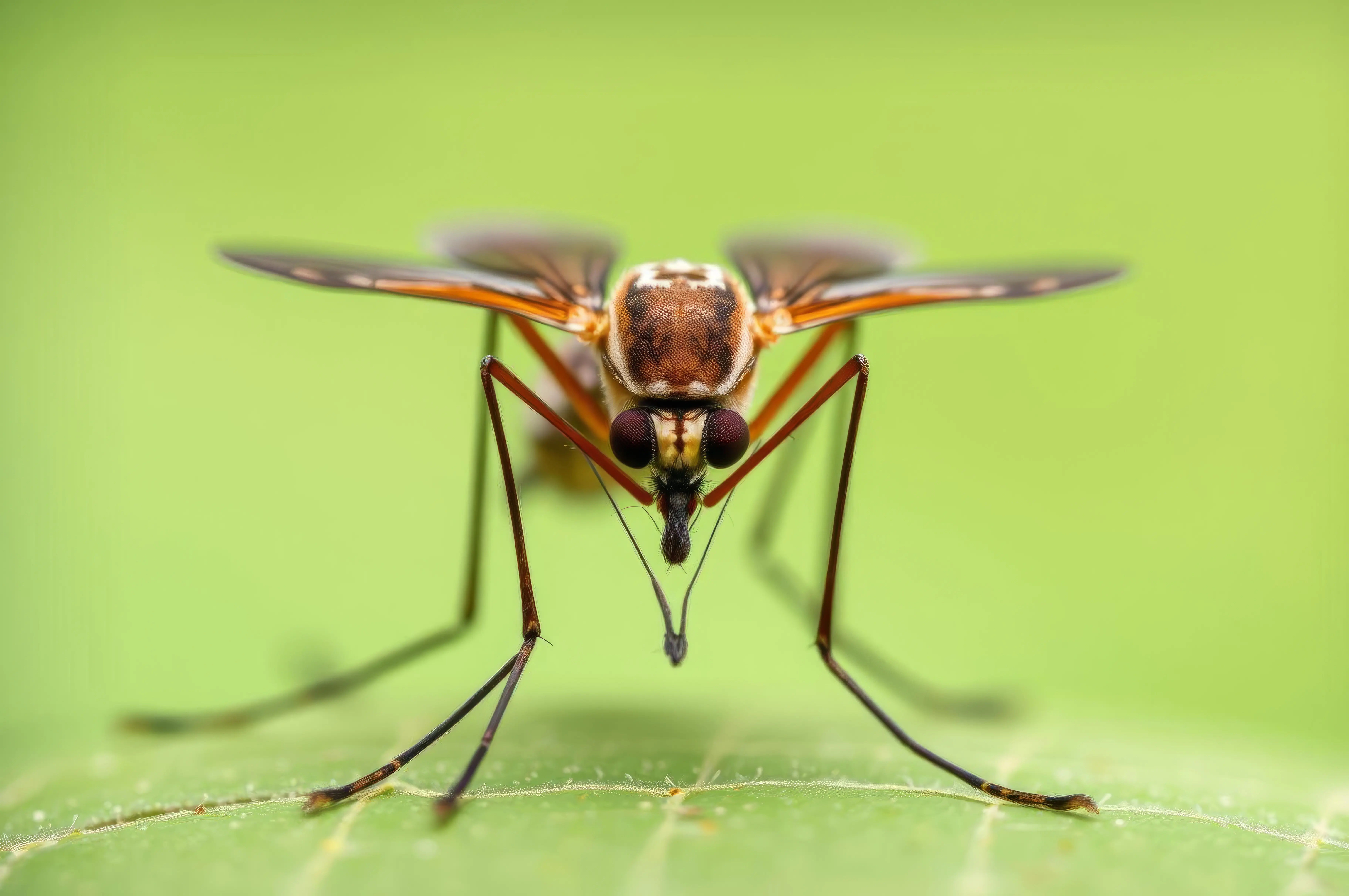Malaria Overview: Symptoms, Causes, and Treatment
Know about malaria, including its common symptoms, primary causes, and available treatment options. Learn how malaria spreads, how it's diagnosed, and steps for effective prevention and recovery.


Introduction
Malaria is a serious but preventable and treatable disease caused by parasites that are transmitted to humans through the bite of infected mosquitoes. It is common in tropical and subtropical regions, including parts of Africa, Asia, and South America. If not treated promptly, malaria can lead to severe health complications.
In this article, we will discuss the symptoms, causes, and treatment options for malaria, along with some helpful prevention tips.
What Are the Symptoms of Malaria?
Malaria symptoms usually appear within 10–15 days after being bitten by an infected mosquito. However, in some cases, symptoms may take weeks or even months to show. Common signs include:
- High fever with chills
- Sweating and fatigue
- Headache and body aches
- Nausea and vomiting
- Diarrhea
- Pale skin (due to anemia)
In severe cases, malaria can cause:
- Confusion or seizures
- Difficulty breathing
- Organ failure
- Unconsciousness
If you or a loved one experience these symptoms, especially after travelling to a malaria-prone area, seek medical help immediately.
Consult a Top General Physician for the best advice
What Causes Malaria?
Malaria is caused by Plasmodium parasites, which are transmitted through the bite of infected female Anopheles mosquitoes. There are five types of Plasmodium parasites that can infect humans, with P. falciparum being the most dangerous.
How Does Malaria Spread?
Malaria spreads through:
- Mosquito Bite: The primary way malaria spreads is through mosquito bites.
- Mother to Baby: A pregnant woman can pass malaria to her unborn child.
- Blood Transfusion or Needle Sharing: Rarely, malaria can spread through infected blood.
Malaria does not spread through casual contact like coughing, sneezing, or touching.
Who Is at Risk?
Some people are at higher risk of severe malaria, including:
- Young children and infants
- Pregnant women
- People with weak immune systems
- Travellers visiting malaria-endemic regions
How Is Malaria Diagnosed?
If you suspect malaria, a doctor will perform:
- Blood tests to detect the parasite.
- Rapid diagnostic tests (RDTs) for quick results.
Early diagnosis is crucial to prevent complications.
Get Your Health Assessed
How Is Malaria Treated?
Treatment depends on the type of parasite and severity of the infection. Common treatments include:
1. Antimalarial Medications
- Chloroquine (if the parasite is not resistant)
- Artemisinin-based combination therapy (ACT) for P. falciparum
- Other drugs like quinine, doxycycline, or mefloquine
2. Hospitalization (for severe cases)
- Intravenous (IV) medications
- Supportive care for complications like dehydration or organ failure
Never self-medicate; always consult a doctor for the right treatment.
How Can You Prevent Malaria?
Preventing malaria is possible with the right precautions:
1. Avoid Mosquito Bites
- Use mosquito nets (especially insecticide-treated ones).
- Apply mosquito repellent (containing DEET or picaridin).
- Wear long-sleeved clothing in high-risk areas.
- Stay in air-conditioned or screened rooms.
2. Take Preventive Medications
If travelling to a malaria-prone area, consult a doctor for antimalarial prophylaxis (preventive medicines) before, during,
and after your trip.
3. Reduce Mosquito Breeding
- Eliminate stagnant water (where mosquitoes breed).
- Use indoor insecticide sprays.
When to See a Doctor?
Seek immediate medical help if:
- You develop fever after visiting a malaria-prone area.
- Symptoms worsen despite home care.
- You experience confusion, seizures, or difficulty breathing.
Final Thoughts
Malaria is a serious but preventable disease. By taking the right precautions, such as using mosquito nets, repellents, and preventive medicines, you can significantly reduce your risk. If you experience symptoms, early diagnosis and treatment are key to a full recovery.
Consult a Top General Physician for the best advice
Consult a Top General Physician for the best advice

Dr Syed Mateen Pasha
General Physician
2 Years • MBBS
Bengaluru
PRESTIGE SHANTHINIKETAN - SOCIETY CLINIC, Bengaluru

Dr. Vivek D
General Physician
4 Years • MBBS
Bengaluru
PRESTIGE SHANTHINIKETAN - SOCIETY CLINIC, Bengaluru

Dr. Syed Ismail Ali
General Practitioner
7 Years • MBBS
Hyderabad
Apollo 24|7 Clinic, Hyderabad

Dr. Harshendra Jaiswal
General Physician/ Internal Medicine Specialist
12 Years • MBBS , MD (General medicine)
Kolkata
108 DHANA DHANVANTARI Clinic, Kolkata
(25+ Patients)
Dr. Thandra Ramoji Babu
General Physician/ Internal Medicine Specialist
5 Years • MBBS, DNB(General Medicine)
Warangal
Sai Ram multi-specialty hospital, Warangal
Consult a Top General Physician for the best advice

Dr Syed Mateen Pasha
General Physician
2 Years • MBBS
Bengaluru
PRESTIGE SHANTHINIKETAN - SOCIETY CLINIC, Bengaluru

Dr. Vivek D
General Physician
4 Years • MBBS
Bengaluru
PRESTIGE SHANTHINIKETAN - SOCIETY CLINIC, Bengaluru

Dr. Syed Ismail Ali
General Practitioner
7 Years • MBBS
Hyderabad
Apollo 24|7 Clinic, Hyderabad

Dr. Harshendra Jaiswal
General Physician/ Internal Medicine Specialist
12 Years • MBBS , MD (General medicine)
Kolkata
108 DHANA DHANVANTARI Clinic, Kolkata
(25+ Patients)
Dr. Thandra Ramoji Babu
General Physician/ Internal Medicine Specialist
5 Years • MBBS, DNB(General Medicine)
Warangal
Sai Ram multi-specialty hospital, Warangal





